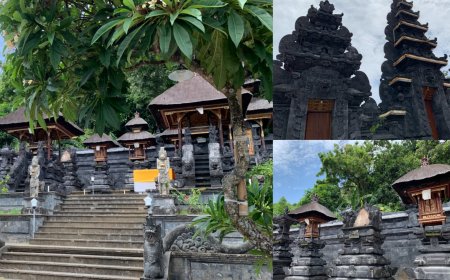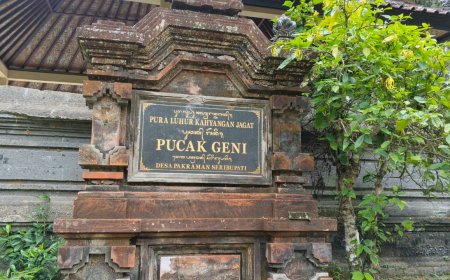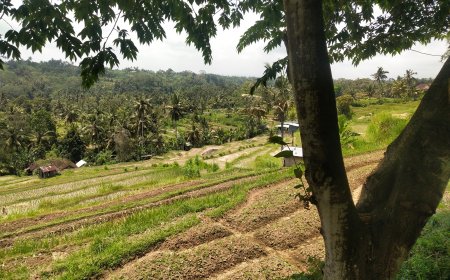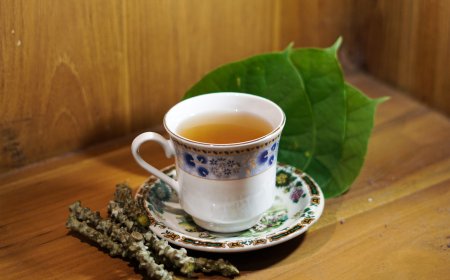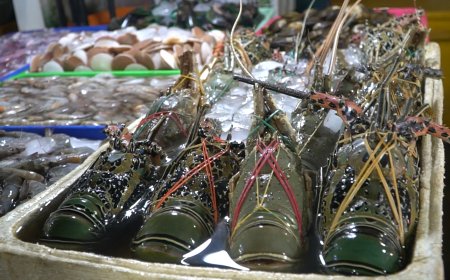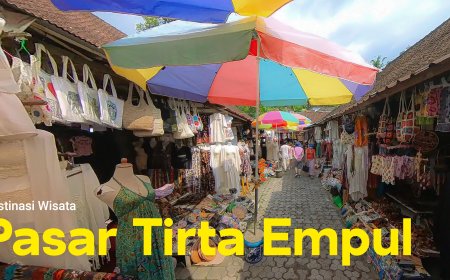The Sacred Bamboo Forest of Penglipuran Village: A Revered Natural Heritage
The famous bamboo forests in Bali are in Bangli Regency, especially in Penglipuran Village. This place is very interesting as a tourist destination. Apart from offering stunning views, the bamboo forests in Bangli also have sacred value and are very useful for local residents and are carefully maintained for their preservation.
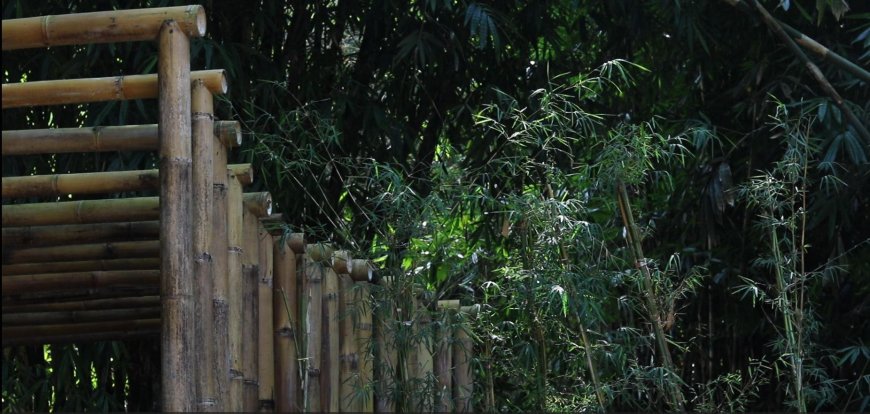
In Bali, there are various types of forests, one of which is bamboo forests. The largest bamboo forest is located in Penglipuran Traditional Village, Bangli Regency. Bamboo trees are a type of plant that has important significance and provides great benefits for the Balinese people. Quoted from the book "Types of Bamboo in Bali and Their Potential" by Ida Bagus Ketut Arinasa and I Nyoman Peneng, the need for bamboo in Bali reaches 6.5 million stalks every year. This number does not include the need for facilities and infrastructure for religious ceremonies, agricultural activities, livestock businesses, and other needs which require around 28,804,682 bamboo stalks per year.
On the island of Bali, there are also endemic types of bamboo which are native to the island of Bali. Some of them are Jajang Taluh bamboo (Gigantochloa Taluh) and Jajang Aya (Gigantochloa Aya), which can be found in the Penglipuran Traditional Village, Bangli and its surroundings. Bamboo Buluh Kedampal (Schizostachyum Castaneum) can be found in the Tabanan area and its surroundings, while bamboo ooh (Bambusa ooh) is only found in the Pempatan area, Karangasem Regency and its surroundings. Apart from that, there is Tali bamboo (Gigantochloa Baliana) which can be found in the highland areas of Buleleng, such as in the Sidatapa, Pedawa and Tigawasa areas. This information is also recorded in the book "Jenis-Jenis Bambu di Bali dan Potensinya."

Penglipuran Bamboo Forest Entrance (Photo Source: Private Collection)
The bamboo forest in the Penglipuran Traditional Village is given great attention to its preservation. This is not only to preserve the natural heritage that has been passed down from generation to generation, but also because the people of Penglipuran Traditional Village rely on bamboo from the forest as a source of daily life. Therefore, efforts to preserve bamboo forests in the Penglipuran Traditional Village continue to this day.
In its history, quoted from detikBali. Bamboo plants are a unique feature and characteristic of Bangli District, Bangli Regency, especially in Penglipuran Village and the surrounding villages. Based on information presented in the Proceedings of the National Semester on Literature and Culture II at Udayana University, Bali, the existence of bamboo has a close relationship with the history of ancient kingdoms in Bali.
The story records that the King of Buleleng, Panji Sakti, once attacked the Bangli Palace. The Panji Sakti people carried loads or poles made of bamboo, which were then scattered in various places. The local people then planted these bamboos, and over time, these bamboos grew into extensive bamboo forests.
Penglipuran Village, as one of the ancient villages inhabited by the Bali Aga tribe, has a very close relationship with Bayung Gede Village, Kintamani District, Bangli. Initially, the residents of Penglipuran Village were immigrants from the Bayung Gede community. In the past, the King of Bangli, whose title was I Dewa Ayu Den Bencingah, asked a number of Bayung Gede residents to guard and guard his palace. After conditions in the palace were safe, the residents were given a plantation area which became known as Kubu Bayung. This place became the forerunner of Penglipuran Village as we know it today.
The bamboo forest has a deep symbolic meaning for the people of Penglipuran Traditional Village, which is reflected in their understanding of the Tri Mandala concept and the Tri Hita Karana concept. Within the framework of the Tri Mandala concept, the bamboo forest is considered a symbol of a sacred place that is respected and cared for with a sense of sacredness by the residents of the Penglipuran Traditional Village. Meanwhile, in the context of the Tri Hita Karana concept, bamboo forests are an important symbol of life by maintaining relationships with nature, humans and God.
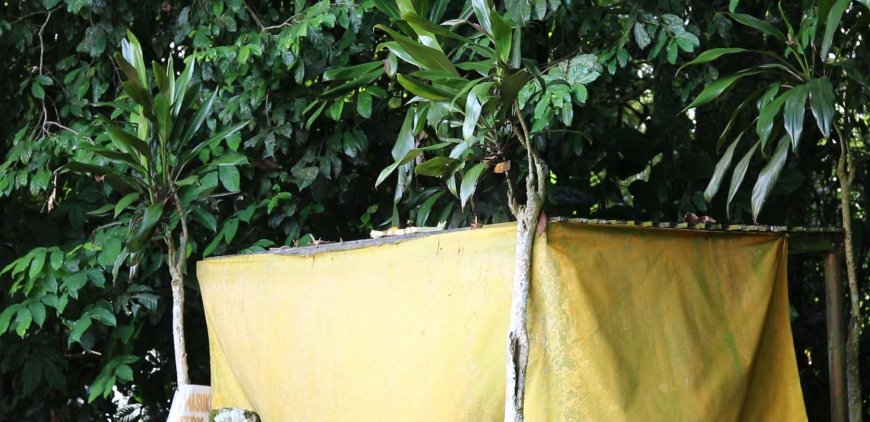
Example of Implementing Tri Hita Karana in Bamboo Forests (Photo Source: Private Collection)
Preserving bamboo forests in the Penglipuran Traditional Village has a very significant role in maintaining the natural ecosystem and preventing negative impacts such as floods and landslides. Bamboo forests also act as guardians of water conservation in the soil with their roots, which helps prevent the area from experiencing drought. Furthermore, bamboo forest conservation is considered to be able to contribute to creating important water sources for the surrounding community.
The relationship between the Penglipuran Traditional Village community and the natural environment, especially the bamboo forest, is clearly reflected in the implementation of the offering ceremony to bamboo trees when they celebrate Tumpek Wariga Day. The residents of Penglipuran Traditional Village diligently preserve the bamboo forest which they view as a valuable heritage from their ancestors. This conservation practice reflects the behavioral patterns that the community upholds in protecting the ecosystem around them, as well as following the teachings and values that exist in their village to ensure that bamboo forest conservation continues.
Apart from ecological benefits, bamboo forests also have deep cultural value for the people of Penglipuran Traditional Village. They believe that bamboo forests are the roots of their history and have an important role in their lives. With this belief, they pay attention to the times that are considered appropriate for felling bamboo, and try to avoid this action at times that are considered unlucky. The community also has an understanding of the seasons that influence bamboo growth, such as not collecting bamboo during the rainy season when bamboo shoots are abundant. All of these steps reflect a deep awareness of the importance of maintaining harmony between humans and nature.
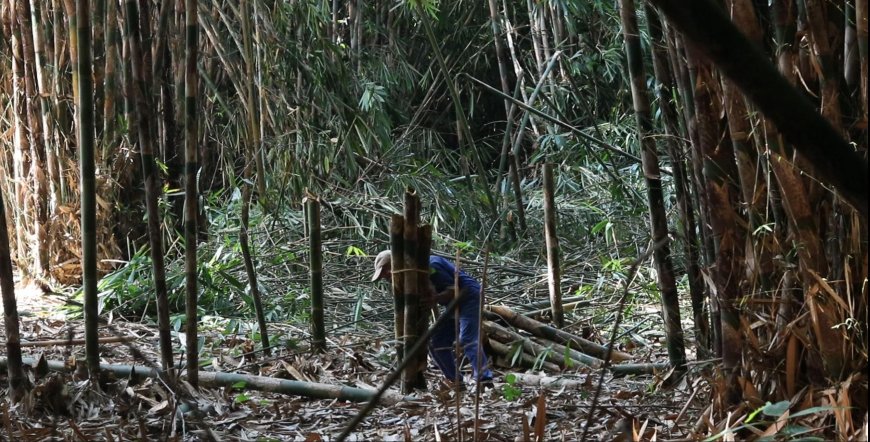
Residents Bring Bamboo Cuts (Photo Source: Private Collection)
In preserving bamboo forests, the Penglipuran Traditional Village community adheres to various strict regulations and practices. They apply the concept of "hutan duwe" (owned forest), which regulates the prohibition of cutting bamboo excessively or on days that are considered unfavorable. The Tumpek Wariga ritual ceremony also has an important role in this conservation practice, where each bamboo forest owner brings offerings as a sign of respect for the bamboo trees and as an effort to maintain their blessings. Then, the community actively participates in mutual cooperation activities which are held every two weeks to keep the bamboo forest clean. The village government also supports this effort by employing sweepers who are tasked with cleaning up bamboo leaf waste, which is then processed into organic fertilizer. All of these actions are proof of the deep commitment of the Penglipuran Traditional Village community in preserving the bamboo forest and maintaining the balance between humans and nature.
The bamboo forest remains a place that is considered very sacred by local people, and in their view, this forest contains the historical roots of their existence in the region. This belief makes determining the right time to cut down bamboo trees very important. According to their belief, the act of cutting down at a bad time can have bad impacts.

Sweeper Cleaning Bamboo Leaves (Photo Source: Private Collection)
Local people also have a deep understanding of natural cycles, such as not collecting bamboo during the rainy season because at that time bamboo shoots tend to be more abundant. They also have knowledge about which parts of the bamboo grove should be cut. Things like this reflect their efforts to maintain a balance between humans and nature, in accordance with the Tri Hita Karana concept, where their actions towards bamboo are not carried out haphazardly.
In conclusion, the bamboo forest in Penglipuran Traditional Village, Bali, not only has significant ecological value in maintaining natural ecosystems and preventing negative impacts on the environment, but also has deep cultural meaning for the local community. Bamboo forests are a symbol of life, continuity of ancestral heritage, and a symbol of balance between humans and nature. Strict conservation efforts, such as the "duwe forest" concept, the Tumpek Wariga ritual, and mutual cooperation activities, are proof of the commitment of the Penglipuran Traditional Village community in preserving the bamboo forest. For this reason, let us all reflect together on the importance of protecting this bamboo forest as a valuable asset and a very sacred place, so that this natural and cultural heritage can continue to be preserved for future generations.



